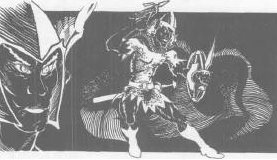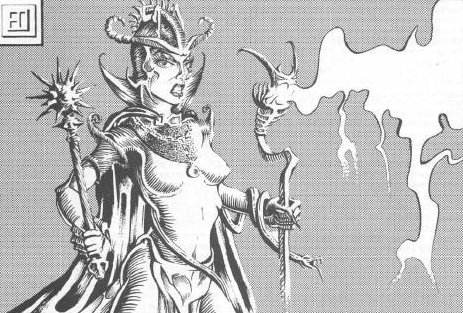In many different modern fantasy settings, Dark Elves as a race share some common traits, and can be considered to be an archetype of sorts from which each setting adapt some features to better fit in the specific fictional world.
Just as examples of some of these traits, which can even not be present in a single particular setting, they:
- are dark skinned, with the exact color being a variation of gray tones;
- have black, gray or white hair;
- are being commonly considered "evil": they are usually cruel, aggressive and deceptive;
- are generally closed to outsiders, if not openly racist;
- have a social structure heavily based on clans and familial bonds;
- prefer to live in dark places, often underground or in volcanic areas;
- were once part of the "High Elves", but then splintered and formed a new different race/society/culture.
and so on. Keep in mind that this list is only a sample. Some examples are the Drow from Dungeons & Dragons, the Dunmer from The Elder Scrolls, the Dark Elves from the Age of Wonders video game series, and so on.
Some considerations:
- While many other Fantasy races' modern depiction, with all their stereotypical traits can be traced to the works of J.R.R. Tolkien, Dark Elves aren't part of his Legendarium, at least not in these terms: Moriquendi do indeed exist, but their name of "dark elves" is just meaning that they haven't seen the light of the Two Trees, and not as a specification of a distinct race (in fact, Sindar elves were categorized as Moriquendi as well, and they are part of the "good elves" trope).
In Tolkien's Legendarium there is also a single character, namely Eöl, who is know as "The Dark Elf", but this was just a nickname, not a specification of his race: he was a Sindar, and was equal to all other Sindars in this respect. - There are dark elves (Dökkálfar) or black elves (Svartálfar) also in Norse mythology, of course; but together with other races like light elves, dwarves, gnomes and so on, the modern fantasy depiction of these creatures draws from mythology very loosely; they would fall more into a modern definition of fairies or magical creatures rather than "non-human men" as common in the Fantasy genre. I'm not really interested in answers that detail real-world belief systems that originated the concepts of magical non-human races.
Given these premises, where can be traced the origin of this racial archetype? Which work contains the first example of modern fantasy Dark Elves if considered under these terms?


